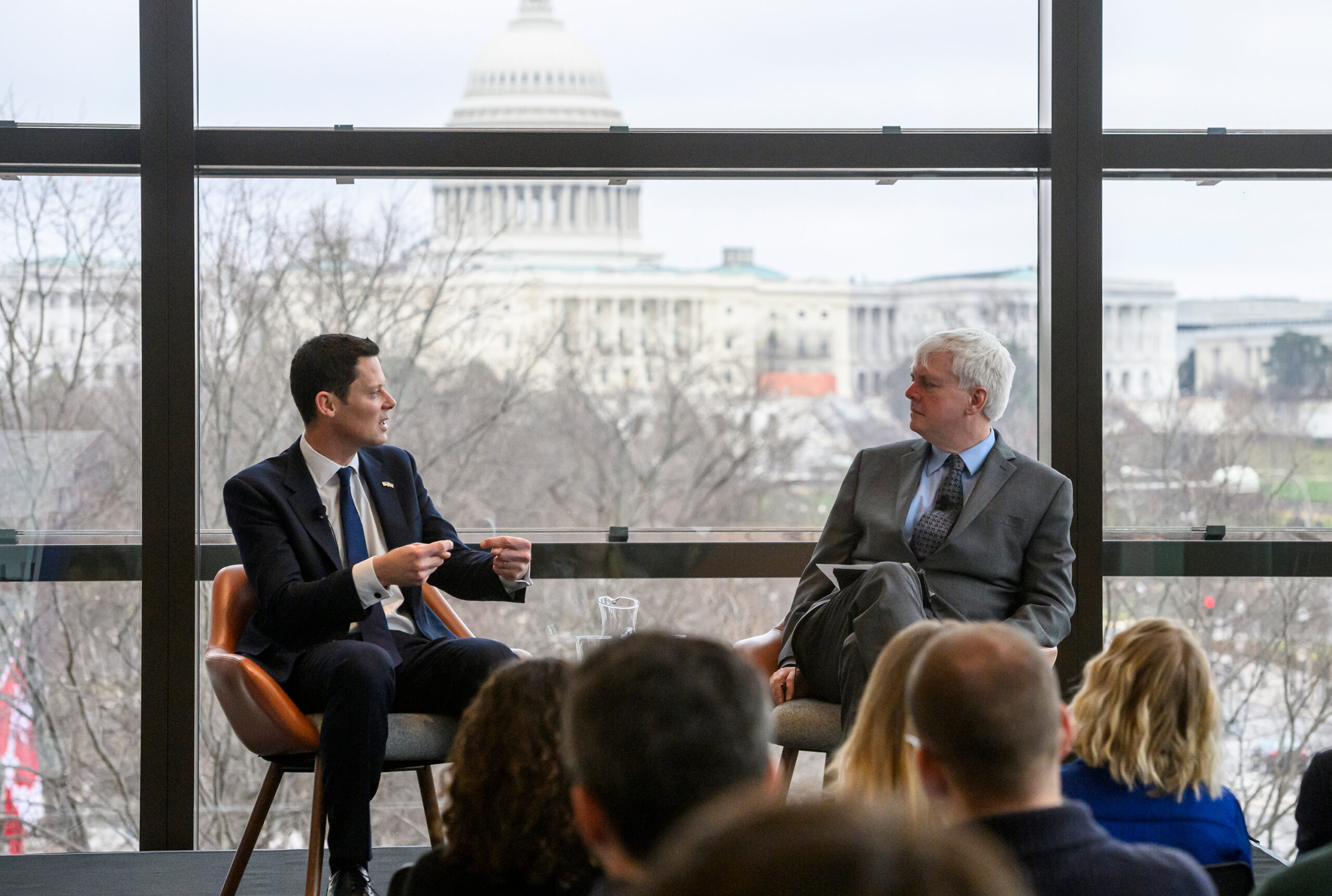U.K. secretary of state for justice: The rules-based order is under attack
Alex Chalk warns that rising authoritarianism around the globe is causing geopolitical instability and threatens to undermine the rule of law

Key Takeaways
- The U.K. Secretary of State for Justice Alex Chalk argues the rules-based order, in place since after World War II, is now unstable.
- Chalk said a variety of factors, including disrespect for borders, is driving a crisis.
- He laid out five steps to strengthen respect for the rule of law.
Alex Chalk, the U.K. Secretary of State for Justice, issued a stark warning during a recent address at the Johns Hopkins University Bloomberg Center: The rule of law—the idea that nations are bound by common rules and principles that govern the way we interact with one another—is threatened by rising authoritarianism.
The “global post-war consensus, which we assumed was unshakable, now need shoring up,” he said. “But rather than letting complacency reign, we must reinforce the reasonable foundations on which it was built.”
Chalk offered three “fronts” on which the rule of law is being challenged and five necessary reforms to ensure rules-based order remains in place.
Challenges to the Rule of Law
- Legally recognized borders now ignored. Chalk pointed to Russia’s invasion of Ukraine as “the starkest” demonstration of countries and other institutions, such as Hamas and Yemen’s Houthi rebels, disregarding borders and international law.
- Countries acting out of fear. The general sense of geopolitical uncertainty—brought on by the actions of bad actors—make “middle ground and non-aligned states feel caught in the crossfire of conflicts for which they bear no responsibility. They understandably fear the repercussions, and some are beginning to equivocate.” This causes countries to enter into alliances out of fear instead of a respect for the rules-based order.
- “Unmanaged” illegal immigration. Chalk expressed concern that the surge in migration, in both the United States and Europe, has undermined the rule of law. “It is clear that unmanaged illegal migration disregards borders and is putting unacceptable pressure on the resources of those base countries like ours as countries whose sovereign legislatures believe in and consciously have chosen to be part of the order,” he said.
Reforms to Bolster the Rules-Based Order
Chalk called on the U.S., the U.K., G7 nations, and NATO nations to act quickly to shore up the rule of law.
“It is incumbent on all of us … to show that the rules-based order works, and it is worth upholding,” he said. “Because while others cause chaos, as nations who believe in the rule of law, it is our legal systems that are the engine room for prosperity across the globe, supporting trade the world over.”
He laid out five steps countries can take to demonstrate the strength of the rules-based order:
- Update legal frameworks to reflect new technology. This includes not just updating laws but making sure lawyers are ready to practice now and in a more technologically advanced future, he said.
- Demonstrate the criminal justice system works. Chalk urged lawmakers to show “our communities and victims that criminal justice works–so that justice is not just done, but seen to be done.”
- Deploy new tech to enforce laws: For example, he said, in England and Wales, law enforcement agents use GPS and alcohol monitoring tools to deliver “tough sentences” while “avoiding short, costly stints in prison which research shows do little to reduce reoffending.”
- Create tools that increase access to law. New digital tools could help individuals and businesses settle issues outside of court, Chalk said.
- Encourage innovation in lawtech. “By keeping pace with advancing methods of delivery, such as transformational technologies like generative AI, and fostering innovation and the growth and adoption of lawtech, … we can maintain the attractiveness as destinations for global businesses that are a boon to both our economies,” he said.